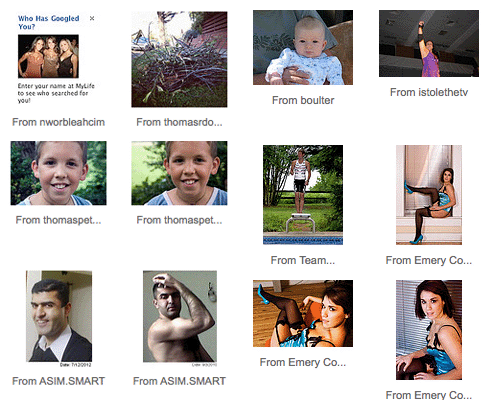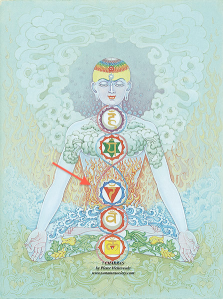It’s wonderful that we learn. A friend once said there’s no worse insult than hearing, “Wow! You haven’t changed a bit!” Sometimes it can feel like things will never be different; and just as easily it can feel like things change within the blink of an eye. It just goes to show how flexible our perception of reality really is. For all those wishing things had been different this February, I give you (in no particular order), my:
10 Things I Wish Someone Had Told Me About Love
1. If it’s now or never, it’s probably better to go with later.
Totally. On average, humans are living about 28,500 days. This would mean that what you do on a given day could only account for about 0.0035% of your life’s memory. It’s amazing, isn’t it? How despite the brevity of our time in any place with any company on a given day, what we experience can have lasting effects (for better or for worse!). While I’ve found taking risks can leave me with wonderful memories that serve my sense of faith and purpose in this world, if someone’s pressuring me to do something… it’s almost never worth it. Having grown up with poor boundaries, my number thing I wish someone had told me is, “If someone’s telling you there’s never going to be another opportunity after tonight, implying that you’re going to regret it if you don’t jump on some offer, ask yourself how important will that day’s *possible* events be in 50 days? 500 days? 5,000 days from now? And, if following through with the opportunity you find you had compromised your values, how would it fuel your sense of shame for days, weeks, or years to come?” For folks who need time to process how they’re really feeling about something, when it comes to ‘now or never,’ it’s probably better to go with, “Later, dude.”
2. Relationships aren’t reflections of what we deserve, but perhaps what we feel we deserve.
This one took me so long to learn. I thought I had to earn respect; and when I wasn’t getting it, I thought it meant I hadn’t yet earned it. I took failing relationships to be a reflection of my insufficiency. But the truth is, we get what we accept. And guess what? You deserve the very best in life. Are you willing to accept it? What gets in your way? I wish someone had told me, “Only you can close the door on inviting in relationships that deflate you, that leave you feeling ashamed, unseen or unheard.”
This is a tough one to belief for people who have only experienced these negative emotions in close relationship. In those times, it may be worth practicing some Louise Hay magic in saying, “I recognize ‘I can’t find a relationship that leaves me feeling whole, seen, or loved’ is a thought; and thoughts can change.'” When the mind changes, our perception changes; and when our perception changes, our life changes.
3. Just because you have sexual feelings for someone doesn’t mean you need to act them out.
Oh, boy. How did I not learn this until way late in the game? I think I thought sexual feelings were traffic lights. Green: Go! Red: Abort, abort!! No one ever told me that sexual feelings are just indications that there’s a quality about a person you value. What? Yea, let me say it again. When you feel attracted to someone, you might just really value their confidence, or their sense of humor. Doesn’t mean you have to act on it. And it really doesn’t mean that they’re a good match for you. (WOW!!)
Sexual feelings are just that– feelings, not meaning. Take your signs of attraction as an opportunity to get in touch with the qualities you think are desirable. Are they qualities you’d like to embody more or be in touch with more? Go for it! Enjoy the feelings of attraction and excitement. They are your creative force! They put you in touch with the very essence of life. But before you go getting it on with anyone, look at their other qualities… are they equally appealing? Do their values match yours?
4. Love and freedom can’t be forced.
There is a dynamic of pulling and pushing between love and freedom. Love’s embrace can restrict freedom’s reach; but love’s encouragement can also send freedom roaring boundless. Without freedom, love can feel smothered. With freedom, love feels overflowing-abundant. Truth is, we can’t force either. We can’t force someone to love us; and we can’t force someone to set us free. It’s a balance. Whether it looks like dancing or fighting, we have to remember we all need the same love, the same freedom. If you want more freedom, give more love. If you want more love, give more freedom. If you can’t give more freedom without feeling unsafe, you probably need more love. Not getting it? Go back to #2, #3, #6, #9… heck, maybe re-read everything else here. 😉
For more on this subject, see #1 and #10.
5. It doesn’t really matter whether you like something or not.
Recently, I’ve been sitting with the fact that, barring abuse, whether or not I truly like something doesn’t really matter. I mean, of course it matters to me; but in the big picture, it doesn’t stop the world from turning; it doesn’t define good or bad in the dictionary. You know? So sometimes, it’s worth just knowing you don’t like something or knowing you would do things differently and being OK with that. Just as we don’t define the world with our likes and dislikes, other people don’t define us when they choose to be or not to be with us romantically.
6. Your partner isn’t a village.
This is an amazingly obvious fact that is so easy to forget in our society. When I lived in New York, I loved the fact that everything came in single servings. It was common to go through life completely isolated, while immersed in a sea of 8-million people. You start to forget we need each other. Then, when you meet that special someone, as they gain your confidence, you start to give them more and more shoes to wear. You ask that they become your lover, your friend, your spiritual counselor, your advocate, teacher, caretaker, homemaker, etc. Truth is, your partner isn’t a village; your partner at most has only two hands and can only wear one pair of shoes at a time. It doesn’t make them a failure if they can’t be your everything. It makes them human. So, remember your friends, your spirituality, your interests; and let them flourish side-by-side with your relationship. Learn to ask for and accept help; learn to lean on all the pillars in your life when times get rough. You’ll find you have much more support than you thought.
7. We don’t find better partners, we become better lovers.
Better lovers of ourselves, that is. The more we treat ourselves with kindness, the more we invite the same from the universe and our lovers. All those days I thought I was at the mercy of the universe, waiting for some perfect person to come along; I wish someone had told me then, “There is no Mr./Mrs. Right, there is only right now: How do I choose to know kindness? How do I choose to see and feel love?” Love is a cultivation practice; and sometimes the greatest act of love is letting go, especially of relationships that leave you feeling deflated, ashamed, unseen or unheard.
8. Everyone is hot.
When you start to see people–really see them–you start to see how amazing they are. Each has their own way, their own expression, their own hopes and inner richness. It can be intoxicating just to feel and to know the world of another. Just going about your day knowing that everyone you meet is hot in their own way makes life way more enjoyable. (In my opinion, that is.)
For more on this subject, see #3 and #5.
9. It’s not personal.
One of the three things that differentiate pessimists from optimists is whether or not they take things personally. And you know what – so much of it isn’t personal. What if in every communication, we understood what someone was saying to reflect their current emotions and needs rather than taking it as a judgment of who or what we should be or be doing? Ah yes, wish someone had told me that in my twenties….
10. Good things take time.
Growing up in a society deeply steeped in instant gratification, we can easily forget it takes time to build trust. It takes time to build respect. Every day we spend alone is another day we can build trust in our abilities, our dreams and our desires. And every day we spend in a love relationship, is another day we get to learn respect for life beyond what we know and believe in our brains and bodies. Both are equally important. Don’t rush it! Steep in self-satisfaction, in being enough, in being love, in being freedom, in seeing others in all their beauty, without the need to control every moment. In time, you’ll share something even better than you had ever imagined with exactly the right person at the right time and the result will be astonishing. It may not feel that way, when you’re sitting there wishing things were different; but I promise you the whole universe is with you, supporting you. Find your heart’s truth, and accept what you deserve: The very best in life.
Having trouble processing your emotions on the matter? Come on in for a Reiki session. Enjoy love, light and insight!



